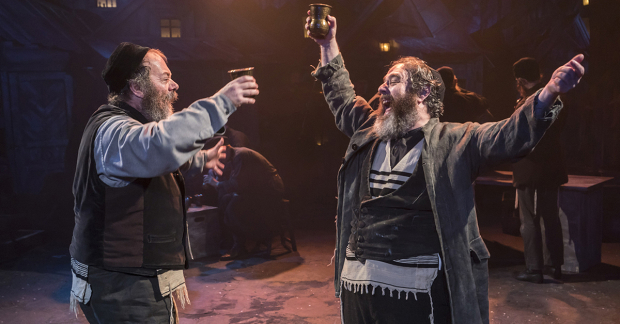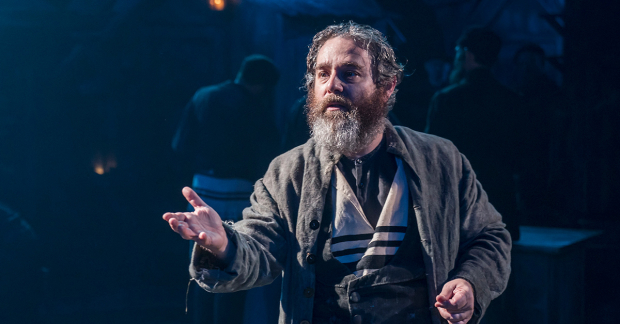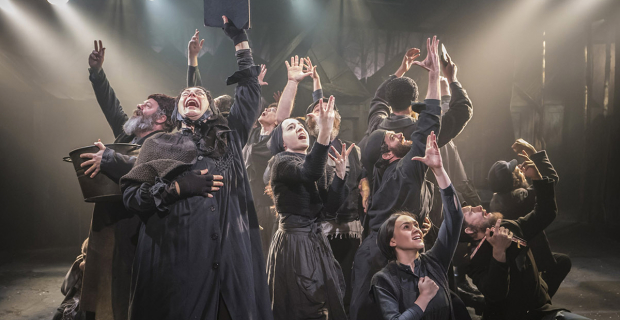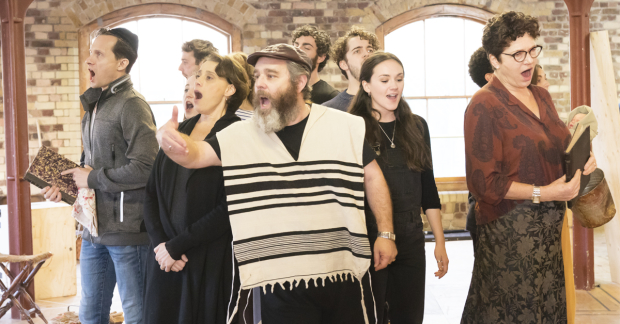Review: The Bay at Nice (Menier Chocolate Factory)
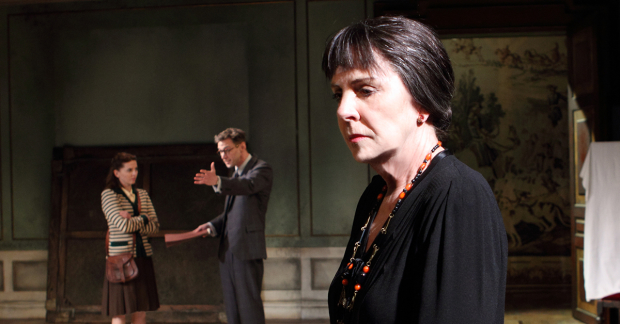
© Catherine Ashmore
The Bay at Nice is like an interesting brooch that has been lying covered in dust at the bottom of the drawer, before emerging all buffed up in this nicely-judged revival.
Written by David in Hare in 1986, just after the bravura panache of Pravda and just before the magisterial social observing of the Racing Demon trilogy, it is small (75 minutes) and perfectly formed, a study of familial relations, artistic truth and political realities that punches well above its weight.
In the hands of Hare's long-time director Richard Eyre, it also emerges as a wonderful setting for Penelope Wilton's gleaming, sharp-edged performance as Valentina Nrovka, an ageing artist called in by the Hermitage in Leningrad in 1956 to assess whether a canvas bequeathed to the museum by an old Tsarist count is indeed the Matisse masterpiece he claims.
Valentina was taught by Matisse in post-war Paris, before deciding to return to her homeland, suffering life under Stalin and the socialist realist style in painting that has ended her own artistic career. She is accompanied by her resentful daughter Sophia (Ophelia Lovibond) who wants to divorce her party-member husband and marry a hapless and much-older man Peter (David Rintoul) in pursuit of liberty and happiness. The quartet of characters is completed by an unnamed curator (played by Martin Hutson), anxious that the Matisse should be genuine in order to make his name.
Fotini Dimou provides an empty but evocative room for proceedings, which throw up questions of authenticity in life and art, choices in love and politics, and above all the question of personal freedom as opposed to loyalty to your country. It's interesting to see the play in the light of Hare's current screenplay for The White Crow where the defecting dancer Nureyev says: "I may never return to my country, but I may never be happy in yours."
Valentina's journey has been in the opposite direction: she could have stayed in Paris and lived a life of indulgence, but has decided exile is more painful than artistic suppression. "I know what life is and what it cannot be," she says, as she denies her daughter's dreams, pursuing the policy of self-denial that has defined her life. Only when she looks at the Matisse, with the sun slanting through the blinds, does Wilton's manner suggest a sense of loss, of what might have been.
Her performance motors the play, catching exactly the cruel charm of a woman who has closed down her emotional life in order to survive. Her timing is immaculate on lines such as "I act as if I am rich, but that is simply good manners" or (when describing Sonia's absent soldier father) "He said the French had a war to go to in Abyssinia. I never checked." But her quality also lies in the way she suggests the lurking sadness behind Valentina's implacably self-possessed front.
Eyre directs with his customary poise and care, keeping things moving at a cracking but also realistic pace. These conversations may be hefty and meaningful, but they unfold at the pace of normal speech and although Lovibond is perhaps initially too child-like (not helped by a strange piece of costuming) she grows in assurance and dignity, cleverly portraying a woman whose life has been utterly wasted by other people's decisions. Rintoul brings a lovely flustered modesty to Peter, and his stillness as he listens to Valentina's memories of Matisse is deeply touching; Hutson is equally impressive in the smallest role.
It's not a revival that is going to shake anyone's view of theatre or of Hare's output. But it is a quiet pleasure, a shining little joy.





